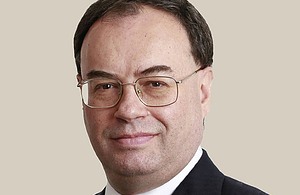Breaking: BoE cuts policy rate by 25 bps to 4.5% as expected
|The Bank of England (BoE) announced on Thursday that it cut the policy rate by 25 basis points (bps) to 4.5% following the February policy meeting, as expected.
The Bank of England (BoE) announced on Thursday that it cut the policy rate by 25 basis points (bps) to 4.5% following the February policy meeting, as expected.
Bank of England (BoE) Governor Andrew Bailey speaks on the policy outlook and responds to questions from the press following the decision to lower the policy rate by 25 basis points (bps) at the February meeting.
Bank of England (BoE) Governor Andrew Bailey speaks on the policy outlook and responds to questions from the press following the decision to lower the policy rate by 25 basis points (bps) at the February meeting.
Bank of England (BoE) Governor Andrew Bailey speaks on the policy outlook and responds to questions from the press following the decision to lower the policy rate by 25 basis points (bps) at the February meeting.
The Bank of England (BoE) announced on Thursday that it left the policy rate unchanged at 4.75% following the December policy meeting, as expected.
The Bank of England (BoE) announced on Thursday that it lowered the policy rate by 25 basis points (bps) to 4.75% following the November policy meeting, as expected.
The Bank of England (BoE) announced on Thursday that it left the policy rate unchanged at 5% following the September policy meeting, as expected.
Founded in 1694, the Bank of England (BoE) is the central bank of the United Kingdom (UK). Known as ‘The old lady of Threadneedle Street’, the bank’s mission is "to promote the good of the people of the United Kingdom by maintaining monetary and financial stability".
The Bank of England is responsible for maintaining the UK’s economic stability. It operates monetary policy by adjusting the Bank Rate and, in certain circumstances, supplements this with measures such as quantitative easing.
The Bank of England decides monetary policy for the United Kingdom. Its primary goal is to achieve a steady inflation rate of 2%. Its tool for achieving this is via the adjustment of base lending rates. The BoE sets the rate at which it lends to commercial banks and banks lend to each other, determining the level of interest rates in the economy overall. This also impacts the value of the Pound Sterling (GBP).
The official website, on X and YouTube
Andrew Bailey has been the Governor of the BoE since March 2020 and his appointment ends on March 2028. Previously, he served in the BoE as its Chief Cashier, Deputy Governor for Prudential Regulation and Chief Executive of the Financial Conduct Authority.

Bailey on his profile and Wikipedia
The World Interest Rates Table reflects the current interest rates of the main countries around the world, set by their respective Central Banks. Rates typically reflect the health of individual economies, as in a perfect scenario, Central Banks tend to rise rates when the economy is growing and therefore instigate inflation.